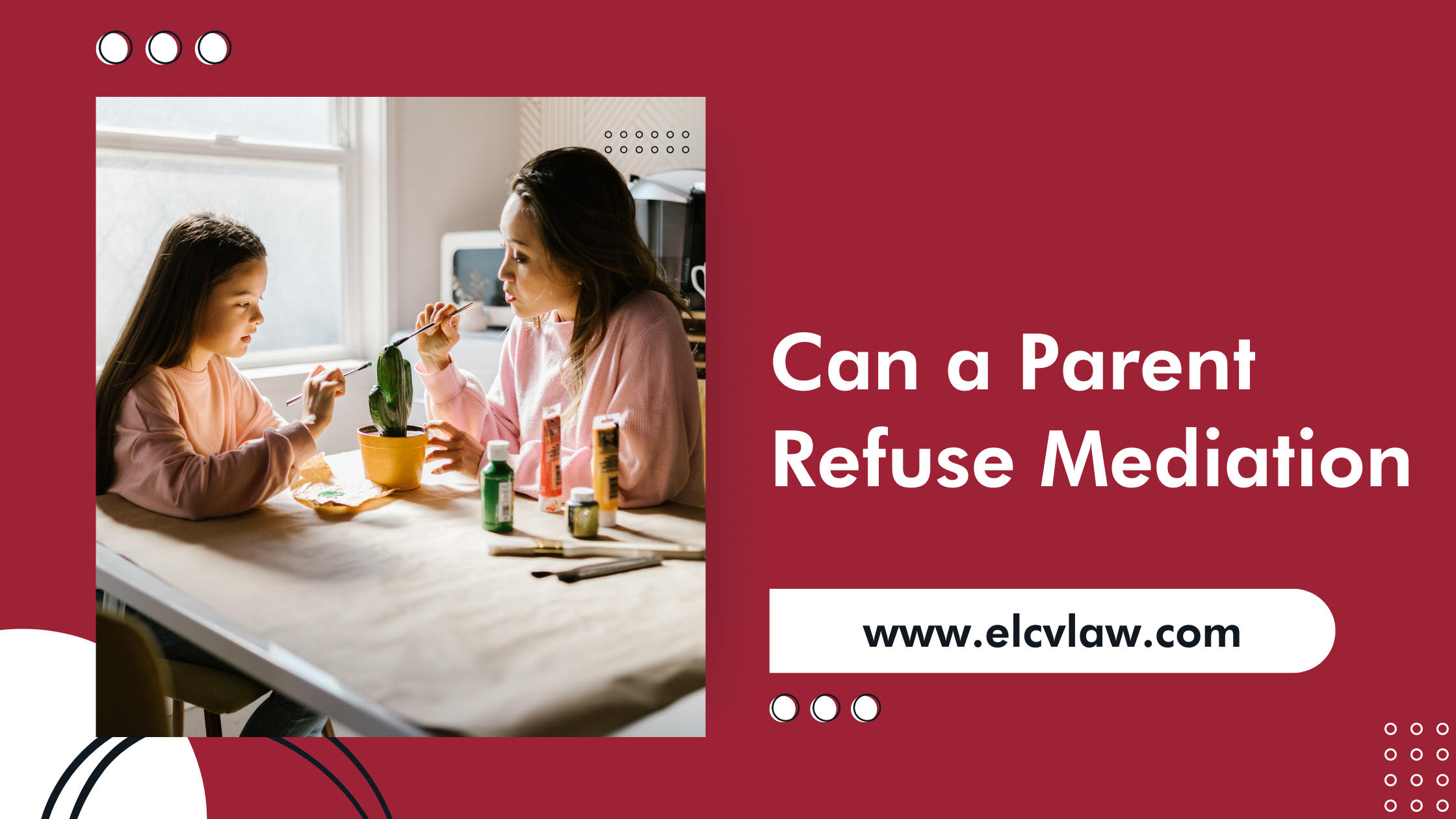2290 East Speedway, Blvd
Tucson, AZ 85719
520-795-2235
Call Us
[email protected]
Contact Us via Email
Tucson, AZ 85719
Call Us
Contact Us via Email

Most child-related issues can be solved in the most pleasant way possible through mediation. Disputes involving children can often become messy and complex when families split up. Mediation can often provide a more civil alternative whereby families meet outside of court with a licensed neutral mediator who seeks to settle their dispute.
However, as part of a divorce, some spouses who tend to have more control in the relationship can try to use mediation as a tactic against their soon-to-be ex-spouse. This tactic leads some to wonder if a parent can refuse mediation. The simple answer is yes, but it also depends on the circumstances. Mediation is voluntary, meaning both parties must agree to participate before it can begin. However, there are different types of mediation that cannot be refused.
Not all mediation is equal. Some mediation is court-ordered, meaning a judge has said that you and your spouse need to engage in some form of mediation. Refusing court-ordered mediation can have severe consequences. If your spouse merely suggests mediation before court proceedings, it can be rejected, but you often need a good reason to refuse mediation.
There are two generally accepted valid excuses for refusing mediation. As mentioned above, mediation can sometimes be used by one spouse to try and gain the upper hand on the other when seeing a judge may yield a different result.
Spouses who hold significantly more power over assets and shared wealth may suggest mediation as a tactic to bully their ex-partner into an uncomfortable agreement. They hope to gain an advantage on items like child support by forcing you into mediation. In this instance, this spouse knows that going before a judge will likely result in them losing many more assets than they would like.
The same can be said for spouses with a history of domestic violence. Undoubtedly the abused spouse will use this history against the other spouse to prevent children from living with them. In mediation, this violent history may not come up.
If one of these instances applies to you, you should be able to refuse mediation without any consequences. However, if you, as a parent, refuse mediation without a valid reason, you may be sanctioned once the case gets to court.

Disclaimer: The content in this article is for informational purposes only and should not take the place of actual legal advice. Not all circumstances are the same, and it is suggested that you should seek legal counsel if you need assistance in any of these areas.

